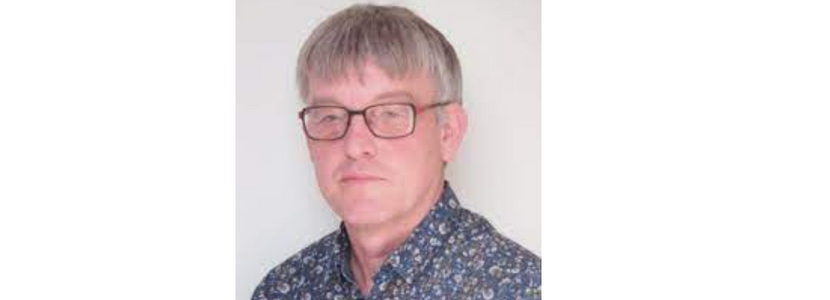NutriNews International spoke with Dr. Jaap Van Milgen a senior researcher at INRAE in France who reviewed the importance of adequate infrastructure in animal nutrition research.

Dr. Edgar Oviedo collaborator and co corresponding author for nutriNews International had the opportunity to speak with Dr. Jaap Van Milgen a senior researcher at INRAE in France. Dr. Van Milgen reviewed the importance of adequate infrastructure in animal nutrition research. This interview took place during the 7th EAAP International Symposium on Energy and Protein Metabolism and Nutrition (ISEP 2022) held in Granada (Spain) from September 12-15, 2022.

Dr. Oviedo: We are here at ISEP 2022 with Dr. Jaap Van Milgen. He has worked in Animal Nutrition for several years, and is a well-known researcher within this field. He will be presenting tomorrow on the need of developing infrastructure to carry out research on animal nutrition. Dr. Van welcome to nutriNews International. Could you tell us a little bit about what you will be discussing tomorrow during your meeting?
Dr. Jaap Van Milgen: Hi and thank you for having me. Yes, what we are going to talk about is infrastructure and what are our need for the future. In regards to having infrastructure for pigs and this is done in a European context as I coordinate project called Pig web. You can look it up on google, where you will find all the information about it. It is based in Europe, and it has funding for a five-year period. It has different aspect to it, amongst which one of these is that we have opened the possibility for external researchers to come in and carryout their research within our infrastructure, and this will be paid for by the EU commission. Another topic that we are dealing with is evaluating what infrastructure are we going to need in the future? How can we develop it, share it, make it more compatible to share data amongst researchers, etc. Therefore, I will be addressing this very specific issue related to Europe, because the European Parliament has asked the EU Commission to develop an action plan for animal experimentation in Europe. With the only exceptions being for medical issues, diseases, but animal research was not indicated as something that is absolutely necessary. Therefore, we as animal scientist must thin about what are our arguments towards society, towards legislators, to support the fact that we need to establish better estimates for requirements, as the information we have today is not enough. We need to convince society that that animal research is necessary for the future!
Dr. Oviedo: That is very interesting Dr. Jaap. What priorities do you think we must follow? Must we focus on emissions and environmental impact? Must we also include overall sustainability and the concept of circular economy for a better use of our resources?
Dr. Oviedo: That is perfect. Another aspect that must be considered in animal production, is the animal behavior and how these react regarding modifications in the way certain nutrients are presented to them, as well as changes in feeding times, etc. These types of factors also influence public opinion regarding animal research and production. Do you think that the application of new sensors, cameras with machine vision systems, and other tools of this sort should be adopted within research centers?
Dr. Jaap Van Milgen: Absolutely, that is something that has changed over the last few years, and it going to continue to change even more in the near future. We all have a cellphone with a few sensors in it, and Google or other make software that integrates this information and this makes life easier for us in certain aspects. Animal research and animal production will use these types of tools in the future. Robotic milking in cows has existed for several year now, while precision feeding in swine is a more recent tool. Regardless of how old or new these tools may be, it is a fact that we are monitoring parameters much more these days. This is very important, considering the fact that such monitoring reduces the need of invasive and experimental research. As we can monitor animals continuously by looking at their feed intake patterns, we can use cameras to follow them, we can use infrared sensors to detect if they might have a disease, and we can do this on an individual basis. This represents tremendous asset for the future.
Dr. Oviedo: In regards to the aspects that you have mentioned for precision feeding do you think it is a matter of just controlling feed intake, and animal weight, or do do you think there are other aspect that must be taken into account? Evaluating other responses that must be quantified also?
Dr. Jaap Van Milgen: Well, I think one of the most interesting aspects of precision feeding is that we can try to feed animals individually. Animals have different requirements in terms of: protein, energy, because they present different levels of activity. Therefore, what we can do in precision feeding is to feed animal according to their individual requirements, and that is something that represent an asset for the future.
Dr. Oviedo: Well, okay. Thank you for your time Dr. Van Milgen! We hope to have you back at NutriNews International for future interviews. Thank you all for your attendance.
Subscribe now to the technical magazine of animal nutrition
AUTHORS

Nutritional Interventions to Improve Fertility in Male Broiler Breeders
Edgar Oviedo
The Use of Organic Acids in Poultry: A Natural Path to Health and Productivity
M. Naeem
Synergistic Benefits of Prebiotics and Probiotics in Poultry, Swine, and Cattle
Gustavo Adolfo Quintana-Ospina
Hybrid Rye Potential in Laying Hen Feed Rations
Gwendolyn Jones
A day in the life of phosphorus in pigs: Part I
Rafael Duran Giménez-Rico
Use of enzymes in diets for ruminants
Braulio de la Calle Campos
Minerals and Hoof Health in the Pregnant Sow
Juan Gabriel Espino
Impact of Oxidized Fats on Swine Reproduction and Offspring
Maria Alejandra Perez Alvarado